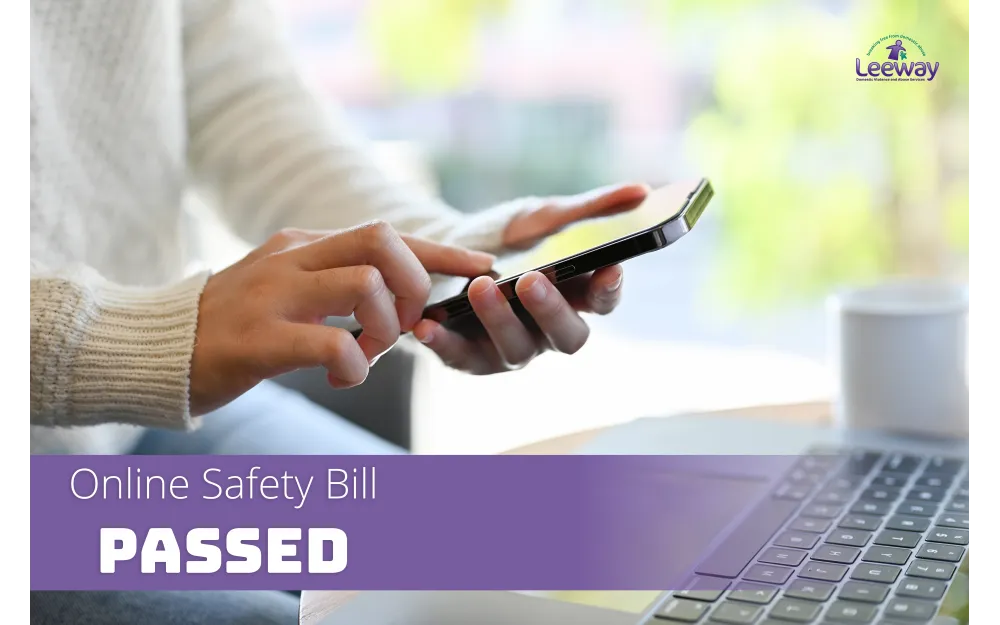
Throughout the last year, the Online Safety Bill has been progressing through parliament and it has now received Royal Assent, meaning it will become law.
The highly anticipated legislation promises to provide greater regulation on social media, protecting users from harmful content and tackling those that perpetrate abuse online. This is another important piece of legislation and we hope that it works alongside the Domestic Abuse Act to protect survivors of domestic abuse.
Key Inclusions
One of the key priorities of the new legislation is keeping children and young people safe when using social media. The Act makes social media companies legally responsible in ensuring children and young people are prevented from accessing harmful and age-inappropriate content.
Social media companies are also expected to prevent harmful content making its way onto their platforms in the first place. This will include revenge porn, inciting violence, coercive and controlling behaviour, sexual violence, and more.
Another inclusion places greater responsibility on sites to ban users that persistently abuse or harass others, including those that set up multiple profiles to do so. Platforms must provide evidence to regulatory body OFCOM – they also regulate what we watch on TV – to show that they are abiding by the new regulations.
Those that are deemed not to be complying will receive hefty fines of up to 10% of their revenue or £18m, whichever is bigger.
Reaction & Significance
The new Act has received a positive reaction from many campaigners, including Nicole Jacobs, Domestic Abuse Commissioner, who called the legislation “a significant step forward in protecting victims of domestic abuse from online harm.”
The legislation has also been met favourably by organisations supporting children and young people, particularly citing the fact that it helps to keep young people safer.
This comes at a crucial time, as a recent Women’s Aid study found that nearly half of the young people surveyed had seen content on social media that was hateful towards women and girls. Exposure to this type of content may lead to these views being normalised, enabling the misogyny that underpins domestic abuse and all forms of violence against women and girls.
It is positive that OFCOM will work with the Domestic Abuse Commissioner to provide guidance for social media companies to protect women and girls on their platforms, which will be driven by lived experiences.
What Next?
The legislation will be gradually introduced over the coming months, with priority given to tackling the most harmful content immediately.
OFCOM will be launching a consultation in early November on certain aspects of the Act, before publishing their full guidance later next year.
Whilst the Act is a big step forward, we will continue to campaign alongside local and national organisations to ensure that survivors are protected and perpetrators face the full consequences for their actions.